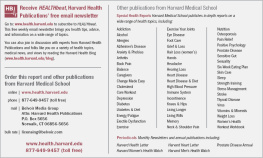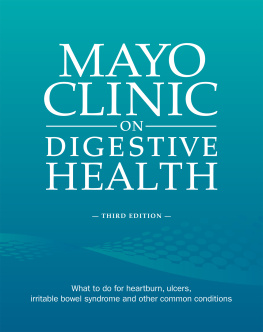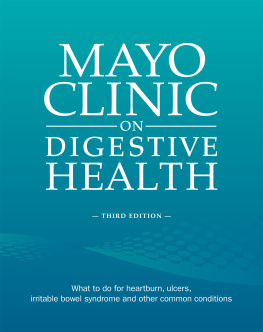
Copyright Notice
This report is copyrighted by Harvard University and is protected by U.S. and international copyright. All rights reserved.
Heres what you CAN do
Print out one copy and route this original to family.
You are permitted to have one copy of this publication on your computer at any time (you cant put it on a network unless you purchased a license to do so). If you have paid for more copies, then you may have that many copies on computers at any time.
Copy, on an occasional basis, a couple of pages to give to friends, family members, or colleagues.
We are registered with the Copyright Clearance Center (CCC). You can comply with the copyright laws by paying a royalty on copies you make of passages. But not even the CCC can authorize cover-to-cover photocopying or wholesale electronic forwarding.
If you want to distribute copies of this publication, either in print or electronic form, to others on a regular basis, ask us about bulk discounts or licensing opportunities. You may be able to negotiate an agreement, for a single fee, that would enable you to legally distribute photocopies or electronic copies to others.
Heres what you CANT do
(without prior permission)
Make or forward email copies of an entire publication. The law provides for a very limited amount of copying, commonly referred to as fair use. However, cover-to-cover photocopying is forbidden.
Electronic transmission of a copyrighted work is the legal equivalent of photocopying it (and so is posting it on the Internet or in an electronic database), and is therefore not allowed.
Routinely copy and distribute portions.
Republish or repackage the contents.
Some publishers must resort to lawsuits to protect their publications. Harvard Health Publications would like to eliminate the need for such suits by helping to educate customers. We hope this outline has helped explain what is legal and what is not.
For more information
Copyright Clearance Center (CCC)
Ph: 508-750-8400
www.copyright.com
Permissions Requests
Natalie Ramm, Harvard Health Publications
Ph: 617.432.2876
Licensing, Bulk, and Corporate Sales
Tonya Phillips, Belvoir Media Group
Ph: 203-857-3148
Harvard Health Publications
Harvard Medical School
10 Shattuck Street, 2nd Floor
Boston, MA 02115-6011
www.health.harvard.edu
THE SENSITIVE GUT
SPECIAL HEALTH REPORT
Medical Editor
Lawrence S. Friedman, M.D.
Professor of Medicine, Harvard Medical School
Chair, Department of Medicine,
Newton-Wellesley Hospital
Editor, Special Health Reports
Christine Junge
Writer
Julie Corliss
Art Director
Nieves Jenkins
Creative Director
Judi Crouse
Copy Editor
Kristie Reilly
Illustrators
Harriet Greenfield, M.A.
Scott Leighton
Michael Linkinhoker
Published by Harvard Medical School
Anthony L. Komaroff, M.D., Editor in Chief
Edward Coburn, Publishing Director
In association with
 Belvoir Media Group, LLC, 800 Connecticut Avenue, Norwalk, CT 06854-1631. Robert Englander, Chairman and CEO; Timothy H. Cole, Executive Vice President, Editorial Director; Philip L. Penny, Chief Operating Officer; Greg King, Executive Vice President, Marketing Director; Ron Goldberg, Chief Financial Officer; Tom Canfield, Vice President, Circulation.
Belvoir Media Group, LLC, 800 Connecticut Avenue, Norwalk, CT 06854-1631. Robert Englander, Chairman and CEO; Timothy H. Cole, Executive Vice President, Editorial Director; Philip L. Penny, Chief Operating Officer; Greg King, Executive Vice President, Marketing Director; Ron Goldberg, Chief Financial Officer; Tom Canfield, Vice President, Circulation.
Copyright 2012 by Harvard University. Written permission is required to reproduce, in any manner, in whole or in part, the material contained herein. Submit reprint requests in writing to:
Harvard Health Publications
10 Shattuck St., 2nd Floor, Boston, MA 02115
617-432-1485 Fax: 617-432-4719
Web Site
For the latest information and most up-to-date publication list, visit us online at www.health.harvard.edu .
Customer Service
For all subscription questions or problems (rates, subscribing, address changes, billing problems) call 877-649-9457, send an email to , or write to Harvard Health Publications, P.O. Box 9308, Big Sandy, TX 75755-9308.
Ordering Special Health Reports
Harvard Medical School publishes Special Health Reports on a wide range of topics. To order copies of this or other reports, please see the instructions at the back of this report, or go to our website: www.health.harvard.edu .
For bulk rates, corporate sales and licensing:
Belvoir Media Group
Attn: Harvard Health Publications
P.O. Box 5656
Norwalk, CT 06856-5656
email:
ISBN 978-1-61401-016-6
The goal of materials provided by Harvard Health Publications is to interpret medical information for the general reader. This report is not intended as a substitute for personal medical advice, which should be obtained directly from a physician.
Contents
Dear Reader,
Out of sight, out of mind, your digestive system is working around the clock delivering the nutrients in food to your bloodstream. As long as the system is running smoothly, you need not think about it. Once trouble begins, however, your gutlike a squeaky wheelsuddenly demands your attention.
For some folks, symptoms such as diarrhea, gas, cramps, heartburn, indigestion, belching, bloating, and nausea are infrequent and tolerable, but many people experience them far more often. An estimated one in four people has frequent gastrointestinal problems that can severely disrupt a normal lifestyle. And the number of prescriptions for gastrointestinal medications has soared since the late 1990s, according to federal statistics.
Although the misery that such problems inflict is real, these ailments arent usually the product of an illness in the conventional sense. Often, they are functional gastrointestinal disorders. That means, unlike ulcers or stomach cancer, they cant be attributed to any physical abnormality or infection. More than 20% of people who consult a gastroenterologist learn that theres no structural abnormality to explain their complaints.
Just because we doctors cant find a physical causemeaning that theres no evidence of disease or a structural basis for the symptomsdoesnt mean youre imagining things. The symptoms are quite real, and if they occur frequently or last more than a month, its a good idea to seek help.
You might be relieved to know that even if your doctor cant pinpoint the cause of your symptoms, the chances are good you can get relief. This report focuses on a number of disorders considered to be functional: reflux, functional dyspepsia, irritable bowel syndrome, constipation, diarrhea, and excessive gas.
The good news is that our ability to treat gastrointestinal disorders continues to improve. With proper knowledgeand the support of the right combination of health professionalsyou can make changes in your lifestyle, use specific medications, find other helpful therapies that will ease your discomfort, and make the right decisions about medical treatments.
Harvard Health Publications | Harvard Medical School | 10 Shattuck Street, Second Floor | Boston, MA 02115
Next page












 Belvoir Media Group, LLC, 800 Connecticut Avenue, Norwalk, CT 06854-1631. Robert Englander, Chairman and CEO; Timothy H. Cole, Executive Vice President, Editorial Director; Philip L. Penny, Chief Operating Officer; Greg King, Executive Vice President, Marketing Director; Ron Goldberg, Chief Financial Officer; Tom Canfield, Vice President, Circulation.
Belvoir Media Group, LLC, 800 Connecticut Avenue, Norwalk, CT 06854-1631. Robert Englander, Chairman and CEO; Timothy H. Cole, Executive Vice President, Editorial Director; Philip L. Penny, Chief Operating Officer; Greg King, Executive Vice President, Marketing Director; Ron Goldberg, Chief Financial Officer; Tom Canfield, Vice President, Circulation.